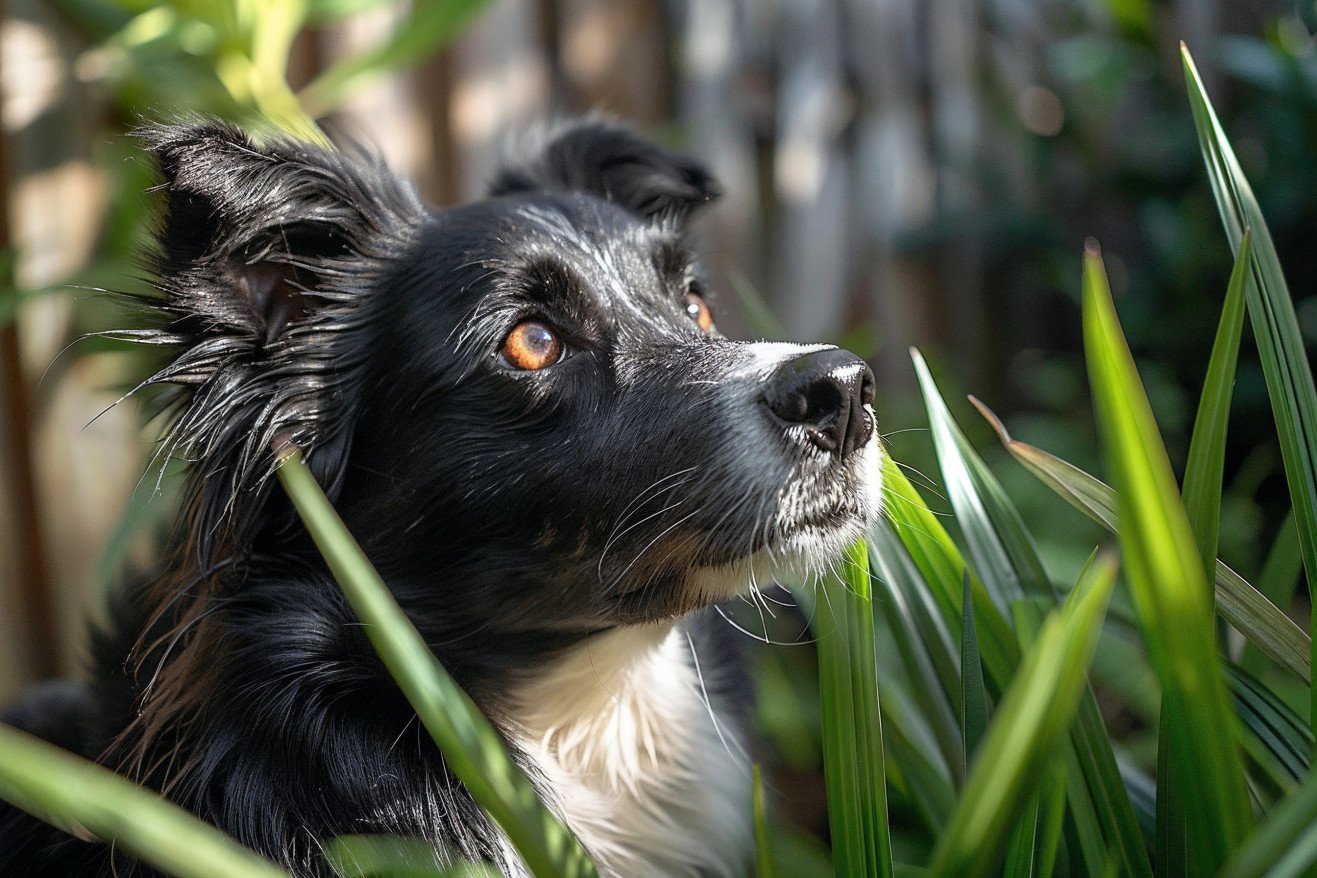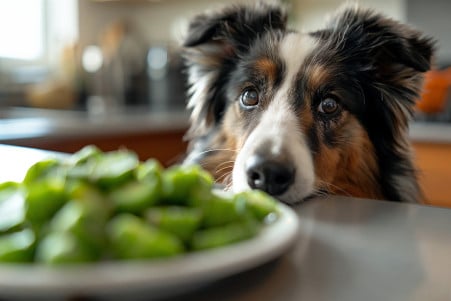Can Dogs Eat Yucca? Benefits and Risks Explained
29 March 2024 • Updated 27 March 2024

Yucca is a plant that has a lot of potential health benefits for dogs, but it's important to know whether it's safe, how much to give your dog, and what the side effects are before you add it to your dog's diet. Yucca root is safe for dogs in small amounts and can help with digestion, but yucca leaves and trunk have saponins that are poisonous - as always, talk to your vet before adding anything new to your dog's diet.
We'll take a look at the most recent studies from veterinarians and pet nutritionists to find out if yucca is a good supplement for dogs. By comparing the potential benefits of yucca, like better digestion, to the potential downsides, you'll be able to decide if and how this plant can help your dog be healthier. The facts will help responsible pet parents decide if and how yucca can be a part of their dog's diet.
Can dogs eat yucca?
What to Know About Yucca Toxicity in Dogs
Yucca plants contain steroidal saponins, which can be poisonous to dogs when ingested. The ASPCA states that these saponins are the toxic components of the yucca plant. Symptoms of yucca poisoning can include nausea, vomiting, diarrhea, abdominal pain, loss of appetite, depression, drooling, incoordination, and weakness, according to TrustedHousesitters.com.
The impact of yucca poisoning can vary based on the amount and part of the plant ingested, with the leaves and trunk being more toxic than the root. Although the root is sometimes used as a supplement in pet food, the Pet Poison Helpline notes that ingestion of any part of the yucca plant can cause drooling, vomiting, weakness, and incoordination in dogs and cats.
If your dog eats yucca, it's important to seek immediate veterinary care. Treatment can include vomiting induction, activated charcoal administration, and IV fluid therapy and may even require hospitalization for observation, according to TrustedHousesitters.com. Although the prognosis is generally positive when poisoning is treated early, these interventions are necessary to manage the toxic symptoms and potential side effects. Given that research on yucca's impact on dogs is still in its early stages, it's best to be cautious when it comes to giving it to your furry friend.
Yucca Schidigera: What Are the Potential Benefits?
Yucca schidigera, also known as Mojave yucca or Spanish dagger, is a type of yucca plant that has been used in traditional Native American medicine. According to Diamond Pet Foods, the trunks of Y. schidigera trees are ground and processed into powder and extract forms for use in many products, including dog and cat foods.
The extract or powder form of yucca schidigera is an ingredient in some pet foods and supplements because it is believed to have several benefits. According to Dogs Reformed Healthy and Well, these benefits for dogs include relieving joint pain and inflammation, acting as an antioxidant, and reducing stool odor. One study found that yucca schidigera extract can help reduce fecal odor and ammonia in dog feces, especially when dogs are fed high-protein diets, according to Alltech.
That said, it’s important to use yucca schidigera in moderation because, as iHeartDogs points out, overconsumption can cause gastrointestinal upset and other potential side effects. Still, because of its potential, this plant-based supplement may be a valuable addition to a dog’s diet when used responsibly and with the guidance of a veterinarian.
Proper Dosage and Veterinary Use
Although yucca schidigera extract is generally safer than the whole plant, it should still be used with caution and under the care of a veterinarian, according to Dogster. The recommended dosage for yucca schidigera supplements for dogs is typically between 1/4 and 1/2 teaspoon per day, depending on the dog's size and weight, says iHeartDogs. Going over the recommended dosage can lead to side effects, including intestinal upset, vomiting, and neurological symptoms, according to Redbarn Pet Products.
Veterinarians may prescribe yucca schidigera supplements to dogs with certain health issues, such as arthritis or digestive problems, but they will also specify the proper dosage and monitoring, says Dogster. It's important to talk to a vet before giving a dog any supplement, especially if the dog is on other medications or has health problems. With a vet's help and responsible use, dog owners can take advantage of yucca schidigera's potential benefits while keeping their dog safe and healthy.
Other Safe Plants for Dogs
Although yucca schidigera may have some positive effects for dogs, it's important to look at other plant-based options that are less risky. According to Daily Paws, many popular houseplants and outdoor plants, including spider plants, palms, succulents, roses, and sunflowers, are non-toxic to dogs.
When looking for plants for a dog-friendly environment, Pure Pet Food suggests looking for plants with no thorns, spines, or seeds that can cause harm or irritation. It's also important to look at the dog's individual tendencies and habits, as some dogs are more likely to chew or eat plants than others.
Talking to a vet or a trusted source can help dog owners find a variety of plants that are safe to bring into their homes. By making sure to prioritize safety and look at other options, dog owners can make sure their home environment is as supportive and safe for their dog as possible.
Responsible Pet Ownership and Prioritizing Safety of Dogs
Any time you're considering adding a new food or supplement to your dog's diet, it's important to talk to your vet and proceed with caution. Even if a plant like yucca schidigera has potential health benefits, it's important to consider the potential risks and to make sure that you're using the product in the right dosage and according to the manufacturer's instructions. Part of being a responsible pet owner is learning about potential hazards in your home and the world around you and taking steps to protect your dog from them.
Regular vet visits and open communication with your vet can help ensure that you're aware of any potential health issues and can help you get personalized advice about your dog's needs. By prioritizing safety and working with a vet, pet owners can feel confident that they're making the right choices when it comes to adding new things to their dog's diet and living environment.


